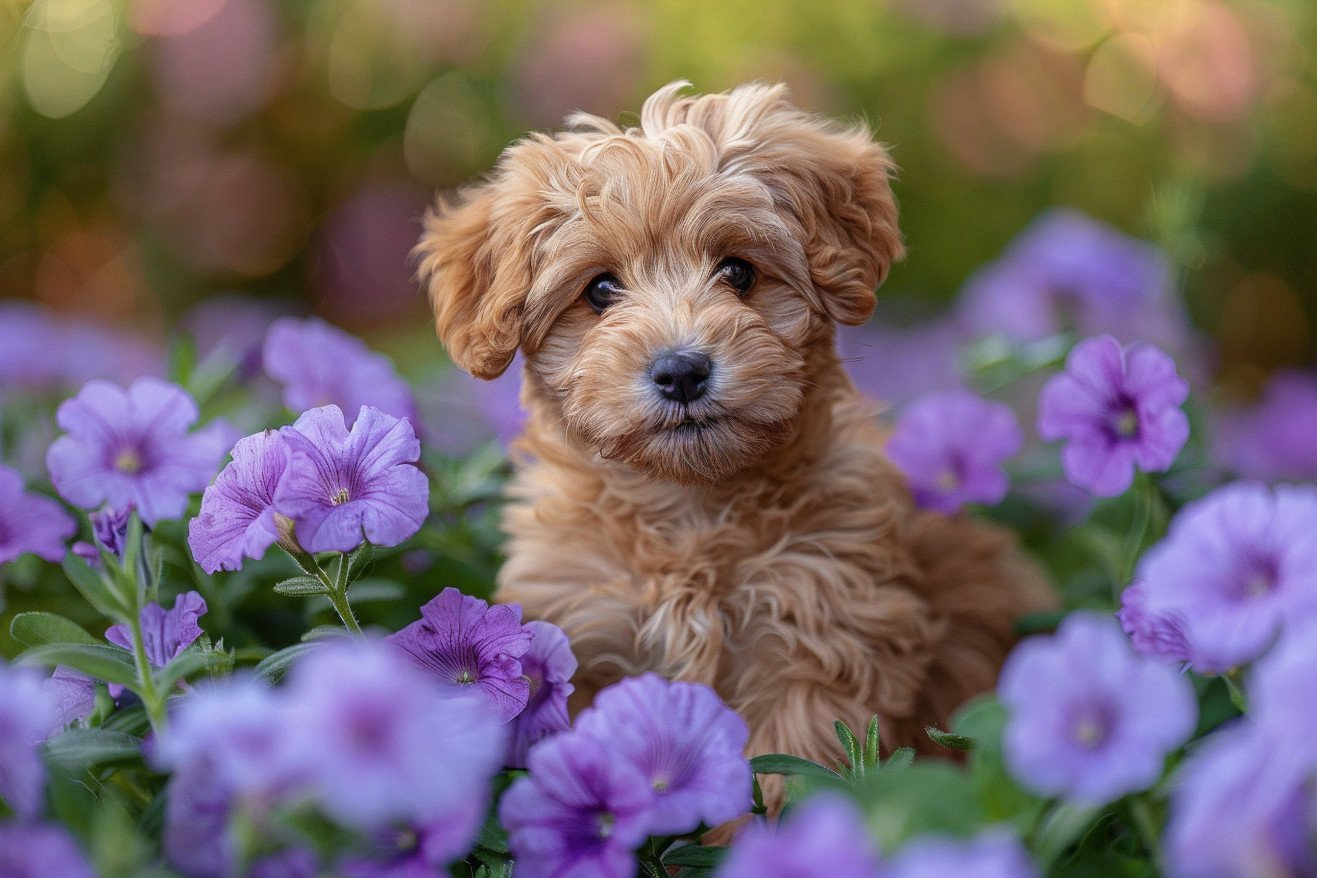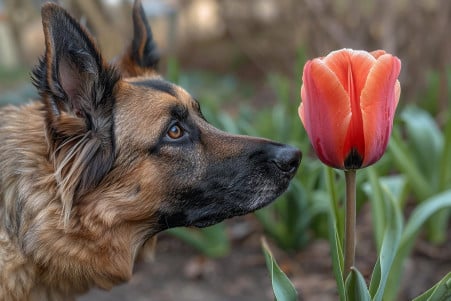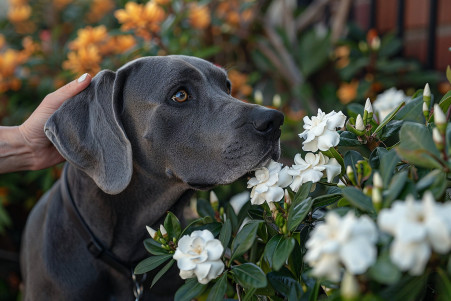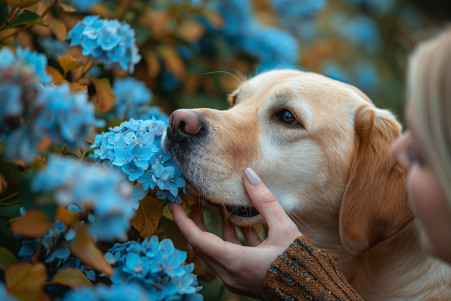Can Dogs Eat Petunias? Here's What Science Says
4 June 2024 • Updated 3 June 2024

Petunias are a common garden flower, but if you have a dog, you might be worried about the potential dangers they pose. Luckily, petunias are not poisonous to dogs and are safe to plant in areas where dogs will be spending time. Even if your dog decides to take a bite, petunias are not toxic and won't poison or otherwise hurt your dog.
To help you better understand the risks and non-risks of petunias, we'll take a look at the scientific and medical research on the topic. This research includes horticultural experiments on the toxicity of petunias, clinical case studies on petunia exposure in dogs, and analyses of the chemical compounds in the plant. With this evidence-based information, you can decide whether or not to plant petunias in your dog-inclusive garden.
Are petunias poisonous to dogs?
Possible Symptoms and Reactions of Dogs Eating Petunias
Even though petunias are not poisonous to dogs, eating them can cause some minor gastrointestinal distress. The most common reactions are vomiting, diarrhea, and temporary lethargy or lack of appetite. That said, these reactions are usually brief and not a cause for concern, similar to a dog's upset stomach.
If your dog does eat petunias, make sure to watch them closely and make sure they have access to plenty of water so they don't get dehydrated. While a single instance of vomiting or diarrhea is often not a big deal, if the symptoms don't go away or get worse, you should call your vet. This could be a sign of an underlying issue that needs to be addressed by a vet.
That said, if you pay attention to your dog's symptoms and make sure they're drinking enough water, you can help them feel better if they have any discomfort from eating these non-toxic flowers. With the right attention and care, any mild symptoms should go away quickly and not cause your dog any additional discomfort, so you can enjoy the beautiful colors that petunias add to your outdoor areas.
Plant Toxicity and Allergies in Dogs
Even though petunias are safe for dogs, it’s important to know the difference between toxic and non-toxic plants. Pawprint Oxygen says that toxic plants have compounds that can be harmful in even the smallest amounts, while non-toxic plants can still cause stomach upset if eaten in large amounts.
Dogs can also be allergic to plants, including pollen allergies. The VCA Animal Hospital says that the most common sign of allergies in dogs is itchy skin, which can be localized or generalized. Pollen allergies can also cause sneezing and stomach upset.
PetMD explains that pollen allergies in dogs happen when the immune system overreacts to pollen. If a dog shows signs of an allergic reaction after coming into contact with petunias or any other plant, it’s best to see a vet for an accurate diagnosis and treatment.
How to Make a Dog-Friendly Garden with Petunias
Since petunias are not poisonous to dogs, they are a great option for a dog-friendly garden. They also come in a wide range of colors and types, so they can be used in many different ways in your landscaping. Harris Seeds explains that with the right planting, watering, and care, petunias can be a great addition to a garden that's also safe for dogs.
Of course, dogs should always be supervised around plants, and training can help prevent them from digging up or eating the plants. Beagles & Bargains also suggests using fences or other barriers to keep dogs away from certain parts of the garden. With these steps in place, pet owners can enjoy petunias in their garden without worrying about their dog's well-being.
First Aid and Veterinary Care for Dogs After Petunia Ingestion
If a dog has eaten a large amount of petunias, it is recommended to watch for any signs of distress or sickness. Per the study, make sure the dog has access to water and do not feed them for 12 hours to give their digestive system time to recover. After 12 hours, you can start feeding them a bland diet of boiled chicken and rice to help with any gastrointestinal issues.
Over-the-counter medications like Meclizine or Famotidine can be used to help with nausea, while Pedialyte can be used to help with dehydration. If the dog's symptoms continue or get worse, or if the dog has ingested other potentially toxic substances, take them to the vet immediately.
Conclusion: Enjoy Petunias in a Dog-Safe Space
Petunias are safe and non-toxic to dogs, so they are a great choice for pet-friendly gardens. While the risk of serious poisoning is low, it's still important to watch dogs around petunias and make sure they don't eat too many. Plant Addicts notes that the whole petunia plant, flowers, leaves, and stems, is safe for dogs.
Even though petunias are non-toxic, it's important to know the difference between toxic and non-toxic plants. Pawprint Oxygen explains that toxic plants have substances that are dangerous even in small amounts, while non-toxic plants can still cause digestive upset if they are eaten in large amounts. In addition, dogs can be allergic to plants, including having pollen allergies.
The Dog People by Rover.com says that "it's okay if your dog takes a bite" of petunias, which are safe flowers for dogs. With the right precautions, training, and supervision, dogs and petunias can be in the same space. The Pet Product Guide suggests that fencing or barriers may be needed to keep dogs away from certain parts of the garden.
If a dog does eat petunias and has symptoms that are concerning, it's a good idea to call a vet and administer any necessary first aid. By learning about the potential dangers and taking steps to prevent them, pet parents can plant petunias without worrying about their dog's well-being.


